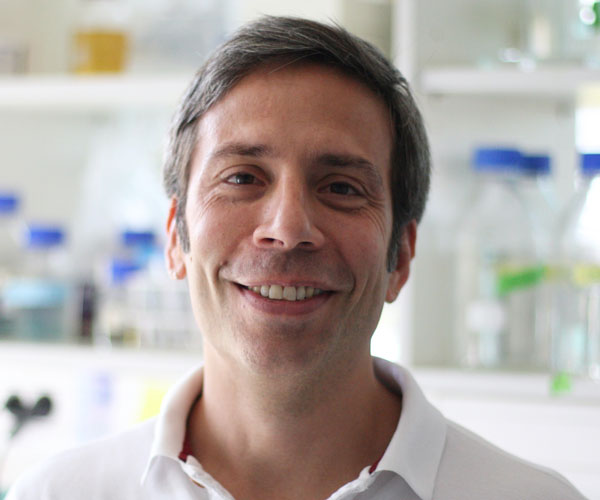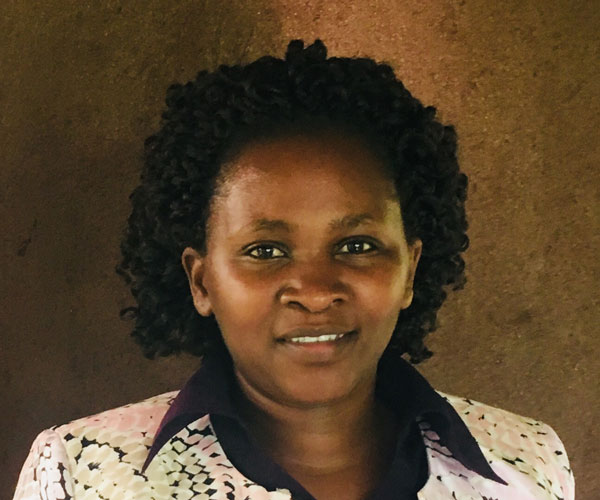Viruses are diverse, fascinating "entities". Some of them, like coronavirus now, take centerstage and turn the world upside down, with about two million infections and almost 120,000 deaths worldwide at 14 April. But others wreak havoc silently and undisturbed.
Viruses like Dengue, for example, are endemic in many countries, with almost 400 million infections per year according to the World Health Organization. Others, like Zika, spread silently showing unpredictable fluctuations, then disappear leaving scientists with no clear explanation about why.
"Viruses are not living organisms in a strict sense. But when they hijack a cell's machinery they almost come to life. Some call them parasites, others claim they are just a bunch of proteins. Scientifically, they are interesting because they help scientists understand how cells work," says João Trindade Marques, a Brazilian virologist and a TWAS Young Affiliate (2013-2017), now an Alumnus.
Marques earned his PhD from the Federal University of Minas Gerais (2002) in Brazil, working on the characterization of wild poxviruses, DNA viruses that include the virus that causes smallpox, which was eradicated in 1980. Viruses from the same poxvirus family still intrigue scientists, since they are quite common and infect farm animals like cows.
The world can’t just respond to diseases like this when an emergency is currently happening, say Marques and another TWAS Young Affiliate. Research on infectious diseases and, in general, research on human immune responses to pathogens has to be ongoing at all times.
"All viruses manipulate their host, and the coronavirus makes no exception," explains Marques. "But their evolutionary success is granted only when they interact with the host without killing it. In doing so, they ease further dissemination in the environment. This is why understanding their behaviour, especially in epidemic-free times, is very important."
Learning from all viruses
During his research on poxviruses, Marques and colleagues found that some wild forms were probably derived from the smallpox vaccine: "Spillovers from one species to another are quite common in Nature," maintains Marques, noting that something similar happened also with the coronavirus. "In the past, doctors used to inoculate attenuated vaccines: preparations where the virus has reduced virulence and is less likely to cause harm. However, the virus remains active and able to grow under favourable conditions, perhaps jumping into the wild."
The world can’t just respond to diseases like this when an emergency is currently happening. Research on human immune responses to pathogens has to be ongoing at all times.
After working as a postdoc at the Cleveland Clinic (Ohio, US) and at Northwestern University (Illinois, US) Marques returned to Brazil, in 2010, joining the department of biochemistry and immunology at the Federal University of Minas Gerais, where he is now a professor. In 2013, he was elected a TWAS Young Affiliate. "This affiliation offers a great opportunity. It eases collaborations across countries as I have contacts with scientists I met at TWAS's meetings."
Today Marques studies human infections like Dengue and Zika, caused by mosquito borne viruses. He is investigating the immune responses in insect vectors such as the mosquito Aedes aegypti, which transmits the viruses to humans but does not fall ill.
Dengue and Zika are quite different in their infectious mode. Dengue plagues more than 100 countries in the world, causing 100 million severe infections and 22,000 deaths per year. The existence of four different strains of Dengue viruses challenges the human immune system, which makes people who were already infected susceptible again and again.
Zika infections are particularly dangerous to pregnant women, and no vaccine is currently available. This virus is also transmitted by A. aegypti mosquitoes and the infection triggers long-term immunity in humans. However, a mystery still remains: why the virus disappears for years after sudden epidemics. The latest one, in 2015-2016, affected Brazil, Colombia, Suriname, El Salvador and Guatemala, to name a few. But then it vanished.
"We are trying to understand how mosquitos can control Dengue and Zika viruses without dying. We have created mutant insects that fall ill and die from the infection and are elucidating the biochemical mechanisms behind antiviral resistance in mosquitoes," Marques explained.
And speaking of coronavirus: "We are trying to help with diagnostics, expanding the number of labs that cooperate against it," said Marques. "This pandemic is forcing us to change our lifestyle: we need to increase our knowledge to adapt to it. But in the future, equally important is educating young people, and recruiting them into science. Human resources are our true treasure."
Changing point of view
Many scientists think there could be a link between some recent pandemics and climate change. With the increase in global temperature, many species are changing their habitats, moving to colder areas and invading new ecosystems.
"Infection trends are rapidly mutating and even high altitude places are now susceptible to infectious diseases that were once confined to planes, where temperature once were higher: this is a matter of public health concern," explains Josephine Ngunjiri, a 2019 TWAS Young Affiliate from Kenya with a PhD in tropical and infectious diseases from the University of Nairobi.
Ngunjiri, who is currently a lecturer in biological sciences at the University of Embu, Kenya, specialises in applied parasitology and infectious diseases. Her qualifications put her in contact also with coronavirus research, as she is now collaborating with the Institute for Health Metrics and Evaluation to monitor the effect that social distancing measures enacted by Kenya’s government have on the burden of disease.
"After the first coronavirus cases, last March, the Kenyan government has introduced safety measures by restricting chances for social interaction, ensuring availability of water and sanitizing devices," the scientist explained. "People understood this, but only in the long run we will we be able to tell their effects at national and sub-national levels. We are still monitoring the situation."
Ngunjiri's main interest, however, is in parasitic infections and their socio-economic impact, especially on children and women. She is embarking on schistosomiasis studies, a neglected tropical disease caused by flatworms called schistosomes, which is endemic in 74 resource-poor nations. According to the WHO, schistosomiasis is the second-most socioeconomically devastating parasitic disease after malaria, with more than 200 millions infected worldwide.
"Female genital schistosomiasis is an major source of social stigma in women, because it causes infertility," Ngunjiri observes. The parasites enter the human body through the skin once in contact with contaminated water, often invading the genital tract to form granulomas in the uterus, tubes, and ovaries.
This causes complete inability to conceive (primary infertility) or the inability to give birth a second time (secondary infertility). "Once married, these young women are either rejected by their husbands, or forced in polygamous relationships because their spouses get married again".
This social stigma is underestimated, but heavy to bear. The schistosomiasis infection also predisposes carriers to sexually transmitted infections, including HIV and AIDS." Unfortunately, people often do not understand the connection between this disease and the parasitic infection, and instead blame supernatural causes.
Another focus of Ngunjiri’s research is the impact of Tungiasis on children aged 5-14. Tungiasis is a skin infestation caused by the female sand flea (Tunga penetrans) that embeds itself in the host’s skin. School drop-outs caused by this infection is a major problem in endemic areas of Kenya, which adds to social stigma too.
"As a TWAS Young Affiliate, I feel I am in a privileged position. I can establish important connections and have an impact on social issues that require scientific knowledge. And thanks to international visibility, I can increase opportunities to receive funding," Ngunjiri notes.
Funding is a key issue also for dissemination and outreach activity, needed to fight popular misconceptions and abolish stigma. In addition, the scientist recently started a collaboration with the Kenya’s department of neglected diseases, under its Ministry of Health, on schistosomiasis research projects to ensure the objectives are aligned, and to orient policy makers' decisions to control health disparities across the country.
Cristina Serra

